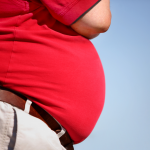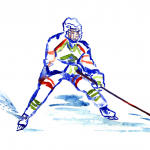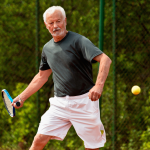In June, we were besieged with headlines stating that hot drinks cause cancer. It was all due to a letter from the International Agency for Research on Cancer, the same letter that overturned its long-standing claim that coffee causes cancer. The bottom line: IARC is confusing. So this holiday season, go ahead and have your coffee -- as hot as you like it.
Other Science News
To kick off our "12 Days of Christmas" holiday list, highlighting the top stories that we've debunked this year, we start with ... the perennial nuisance, the National Resources Defense Council. Those folks made our 2016 list because they just love scaring people over nothing. Here are a few examples.
OK, America. Time to finally but down that second burger and that extra-large soda. A new CDC report shows that for the first time in 22 years, life expectancy for the average American has dropped. Heart disease, which remains the leading cause of death, is directly linked to nation's ubiquitous overeating epidemic.
Your noggin is not as special as you think. That is, in terms of losing heat in the winter. Here's why you can skip the hat and not be entirely doomed.
When the going gets tough, the tough go shopping -- at least when it comes to easing thoughts of one's eventual demise. A few studies can attest to the notion that retail therapy tends to improve the mood of those who are in constant worry of their own mortality. And we can think of a few other reasons, too.
As players adapt to the National Hockey League's updated concussion protocol, several who have taken head blows received on-the-spot medical evaluations. But as to whether the safety guidelines are working as intended, it's worth scrutinizing a recent controversial incident involving the NHL's leading scorer, Connor McDavid.
Largely overshadowed by the NFL, the National Hockey League, working in conjunction with its Player's Association, deserves credit for implementing a smart concussion prevention and management plan. It shows considerable promise, and one that demonstrates a joint commitment to making pro hockey safer.
New genetic technology can either come to fruition and have a positive impact on our lives, or be driven into the ground. The difference depends on whether the people making decisions understand the science and can accurately and properly weigh the risks and benefits.
A high-profile paper published in Science earlier this year is in jeopardy because of events that started out with a theft of a laptop may end up being a big enough transgression to have it erased from the scientific literature. Meanwhile, the paper on microbeads has a major problem, one that the journal is taking its time dealing with.
A pair of misleading health directive headlines, one in Tme Magazine, the other in The Daily Mail, play up the findings of a less-than-rigorous study published in the British Journal of Sports Medicine that failed to make a strong case for associating athletic activities and participation with lifespan.
We let Dr. Wells loose on the mean streets of New York City to see if people can guess her profession. Learn why here.
Junk science is everywhere. This is why our mission is so important. If journalists and advocates don't speak up for good science, cranks and quacks will take over. As part of our ongoing effort to eradicate nonsense, here's our list of the top junk science stories we debunked this year.










